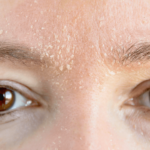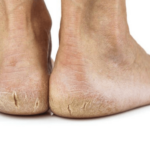Fair skin is a term used to describe a light complexion, which is often associated with people of European descent. The term “fair” is often used interchangeably with “pale” or “light,” and refers to a skin tone that is noticeably lighter than average.
While fair skin is often considered desirable in some cultures, it can also pose certain health risks.
People with fair skin are more susceptible to sunburn and skin damage caused by ultraviolet (UV) radiation. This is because fair skin has less melanin, which is the pigment that gives skin its color and provides some protection against the sun’s harmful rays.
As a result, fair-skinned individuals are at a higher risk of developing skin cancer, particularly if they spend a lot of time in the sun without protection.
Despite the potential risks, fair skin remains a coveted trait in many societies. In some cultures, fair skin is associated with beauty, youth, and purity. This has led to a thriving industry of skin-lightening products, which are marketed to people who want to achieve a fairer complexion.
However, it is important to remember that all skin tones are beautiful and that the most important thing is to protect one’s skin from the sun’s harmful rays.
What Does Fair Skin Mean?

Fair skin is a term used to describe skin that is lighter in color compared to other skin types. It is often associated with people of European descent, but it can also be found in other ethnicities.
Fair skin is caused by a lower amount of melanin in the skin, which is the pigment that gives color to the skin, hair, and eyes.
People with fair skin are more susceptible to sunburn and skin damage caused by the sun’s ultraviolet (UV) rays. This is because fair skin has less natural protection against the sun’s harmful rays.
Therefore, it is important for people with fair skin to take extra precautions when spending time outdoors, such as wearing sunscreen, protective clothing, and avoiding the sun during peak hours.
Fair skin is also more prone to developing freckles, which are small brown spots that appear on the skin. This is because fair skin has a higher concentration of melanocytes, the cells that produce melanin.
Freckles are harmless, but people with fair skin should still monitor them for any changes in size, shape, or color, as this could be a sign of skin cancer.
Additionally, fair skin is more prone to showing signs of aging, such as fine lines, wrinkles, and age spots. This is because fair skin has less natural protection against environmental factors, such as pollution and UV rays, which can damage the skin over time.
In summary, fair skin is a term used to describe skin that is lighter in color due to a lower amount of melanin. People with fair skin should take extra precautions when spending time outdoors to protect their skin from sun damage.
They should also monitor any freckles for changes and take steps to prevent premature aging.
Physical Characteristics of Fair Skin
Fair skin is characterized by a light complexion with a color that is close to being pale white. This skin tone tends to have a smooth and even surface. Fair skin is not just white, as it can come in different shades.
People with fair skin tend to have a lower amount of melanin, which is the pigment that gives color to the skin and protects it from the sun’s harmful UV rays.
Skin Sensitivity
People with fair skin often have sensitive skin that is prone to sunburns, freckles, and other forms of skin damage. They are also more susceptible to developing skin cancer than people with darker skin tones.
Fair-skinned individuals should take extra precautions when exposed to the sun and use sunscreen with a high SPF to protect their skin.
Hair and Eye Colors
People with fair skin often have hair colors that range from blonde to red and light brown. They may also have light-colored eyes such as blue, green, or hazel. Fair-skinned individuals with red hair and light-colored eyes are particularly susceptible to sun damage and skin cancer.
In conclusion, fair skin is characterized by a light complexion, sensitivity to the sun, and a tendency to have lighter hair and eye colors. It is important for people with fair skin to take extra precautions when exposed to the sun to prevent skin damage and reduce their risk of developing skin cancer.
What Is the Difference Between Fair and Pale Skin?

Fair and pale skin are often used interchangeably, but they are not the same thing. Fair skin tone refers to skin that has a color that is close to being pale white. It is not just white but has other qualities such as a yellow or beige undertone.
On the other hand, pale skin refers to skin that lacks blood flow, giving it a green, blue, or dusky undertone. Fair skin can be pale, but not all pale skin is fair.
One of the main differences between fair and pale skin is the risk of sunburn. Fair skin is more prone to sunburn than pale skin because it has less melanin, the pigment that protects the skin from the sun’s harmful UV rays.
Pale skin, on the other hand, may not burn as easily because it has less blood flow, which means less heat is generated on the skin’s surface.
To protect fair skin from sunburn and sun damage, it is important to use sunscreen with a high protection factor (SPF) and avoid prolonged exposure to sunlight.
Pale skin, on the other hand, may require less sunscreen and can tolerate more sunlight, but it is still important to protect it from UV rays to reduce the risk of skin cancer.
Fair skin may have a red undertone, which can make it appear flushed or irritated. This can be addressed with skincare routines that include moisturizers and products that reduce redness.
Pale skin, on the other hand, may appear dull or lifeless, but it can be brightened with the right skincare routine and products.
In some cases, fair skin can be a result of vitiligo, a condition that causes loss of pigmentation in the skin. Pale skin, on the other hand, can be a result of anemia or other medical conditions that affect blood flow.
In conclusion, fair and pale skin may appear similar, but they have distinct differences in terms of their undertones, risk of sunburn and sun damage, and skincare needs. It is important to understand these differences to properly care for and protect your skin.
How Can I Get Fair Skin?

Achieving fair skin is a personal choice, and there are several ways to get fair skin. However, it is important to note that fair skin does not necessarily mean healthy skin. In fact, excessive use of skin lightening products can cause more harm than good.
Here are some ways to get fair skin safely:
1. Protect Your Skin From The Sun
As per Yale Medicine (.org), sun exposure is one of the leading causes of skin damage, including dark spots and uneven skin tone. Therefore, it is important to protect your skin from the sun’s harmful rays.
Wear sunscreen with at least SPF 30 every day, even on cloudy days. Additionally, wear protective clothing, such as long-sleeved shirts and hats, when you are out in the sun.
2. Exfoliate Regularly
Exfoliating your skin regularly can help remove dead skin cells and promote the growth of new, healthy skin cells. This can help improve your skin’s texture and tone. However, be gentle when exfoliating, as harsh scrubs can damage your skin.
3. Use Skin Lightening Products With Caution
Skin lightening products can help reduce the appearance of dark spots and even out your skin tone. However, it is important to use them with caution.
Look for products that contain natural ingredients, such as kojic acid, vitamin C, and licorice extract. Additionally, use these products only as directed and avoid using them excessively.
4. Maintain a Healthy Lifestyle
A healthy lifestyle can also help improve your skin’s appearance. Eat a balanced diet that is rich in fruits and vegetables, exercise regularly, and get enough sleep. Additionally, avoid smoking and excessive alcohol consumption, as these can damage your skin and cause premature aging.
In conclusion, getting fair skin is possible, but it is important to do it safely and responsibly. Protect your skin from the sun, exfoliate regularly, use skin lightening products with caution, and maintain a healthy lifestyle. Remember, healthy skin is beautiful skin.
Fair Skin in Beauty and Makeup
Fair skin is a coveted trait in the beauty industry. It is often associated with youthfulness, purity, and innocence. However, finding the right makeup products to complement fair skin can be challenging.
In this section, we will discuss some foundation and bronzer choices that work well with fair skin, as well as some celebrity examples.
Foundation and Bronzer Choices
When it comes to foundation, it is essential to find a shade that matches the skin’s undertones. Fair skin often has yellow undertones, so it is best to look for foundations that have a warm base.
Some popular foundation choices for fair skin include the L’Oreal Paris True Match Foundation and the Maybelline Fit Me Matte + Poreless Foundation. These foundations offer a range of shades that cater to fair skin tones.
Bronzer can be a tricky product to use on fair skin, as it can easily look muddy or too dark. However, a light dusting of bronzer can add warmth and dimension to the face.
It is best to look for bronzers that have a rosy tint, as they tend to look more natural on fair skin. Some good options include the Benefit Hoola Lite Bronzer and the Physician’s Formula Butter Bronzer.
Celebrity Examples
Many celebrities have fair skin and are known for their impeccable makeup looks. One such example is Cate Blanchett, who often opts for a natural, glowing look. She prefers to use light-coverage foundations that allow her skin to shine through.
Another celebrity with fair skin is Jazmine Venter, who is known for her bold and colorful makeup looks. She often uses bronzer to add warmth to her face and enhance her features.
In conclusion, fair skin can be stunning when paired with the right makeup products. It is important to find foundations and bronzers that complement the skin’s undertones to achieve a natural, flawless look.
By taking inspiration from celebrity examples, anyone can rock fair skin with confidence and style.
How to Take Care of Your Fair Skin?

Fair skin is delicate and sensitive, and requires special care to maintain its health and beauty. Here are some tips for taking care of fair skin:
1. Protect your skin from the sun
Fair skin is more prone to sun damage than darker skin tones. It is important to wear sunscreen with a high SPF, and to avoid spending too much time in the sun, especially during peak hours. Wearing protective clothing, such as hats and long-sleeved shirts, can also help.
2. Keep your skin moisturized
Fair skin is often dry, so it is important to moisturize regularly. Look for a moisturizer that is gentle and fragrance-free, and apply it after showering or bathing, when your skin is still damp.
3. Use gentle skincare products
Fair skin is sensitive, so it is important to use skincare products that are gentle and non-irritating. Avoid products that contain harsh chemicals or fragrances, as these can cause redness and irritation.
4. Avoid hot showers and baths
Hot water can be harsh on fair skin, so it is best to avoid hot showers and baths. Instead, use lukewarm water, and limit your shower or bath time to no more than 10-15 minutes.
5. Eat a healthy diet
A healthy diet can help keep your skin looking its best. Eat plenty of fruits and vegetables, and drink plenty of water to stay hydrated.
By following these tips, you can help keep your fair skin healthy and beautiful.
In Closing
Fair skin is a common term used to describe a skin tone that is lighter than average. It is often associated with people of European descent, but it can be found in other ethnic groups as well. Fair skin is characterized by a lack of melanin, which is responsible for skin pigmentation.
As a result, fair-skinned individuals are more susceptible to sunburns and skin damage caused by UV rays.
It is important for individuals with fair skin to take extra precautions when exposed to the sun. They should use sunscreen with a high SPF, wear protective clothing, and avoid prolonged exposure to the sun. It is also important to note that fair skin does not necessarily mean sensitive skin.
While fair-skinned individuals may be more prone to sunburns, they can still have normal or oily skin types.
Fair skin is often considered desirable in some cultures, but it is important to remember that all skin tones are beautiful. It is important to embrace and celebrate diversity in all its forms.
In conclusion, fair skin is a natural skin tone that can be found in many different ethnic groups. While fair-skinned individuals may be more prone to sunburns and skin damage caused by UV rays, they can still have normal or oily skin types.
It is important to take extra precautions when exposed to the sun and to embrace and celebrate diversity in all its forms.






![Neutral Skin Tone Defined [and Best Colors for Neutral Skin] neutral skin tone](https://skincaregeeks.com/wp-content/uploads/2021/05/neutral-skin-tone-150x150.png)


